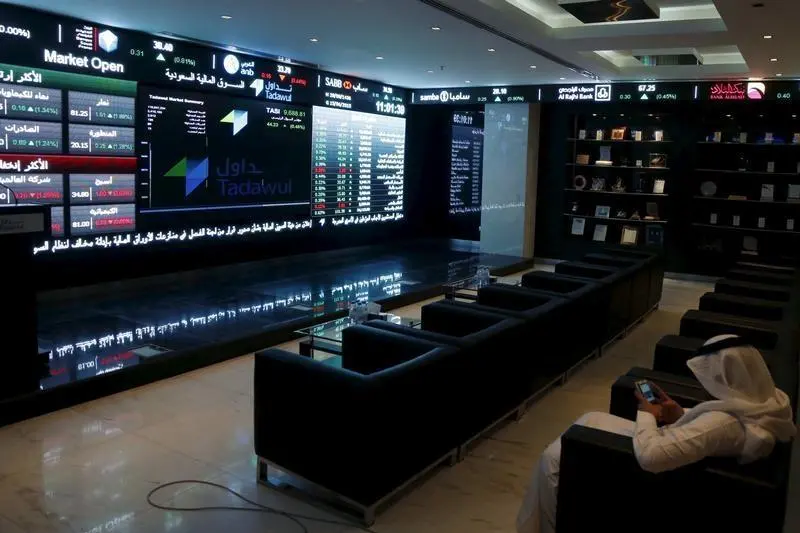PHOTO
Most stock markets in the Gulf ended lower on Thursday after Wall Street snapped a long winning streak that had been driven by rate-cut expectations and the U.S. Federal Reserve's dovish tilt. U.S. stocks closed lower on Wednesday after an abrupt mid-afternoon nosedive ended Wall Street's impressive rally.
Most Gulf Cooperation Council countries, including the UAE, have their currencies pegged to the U.S. dollar and follow the Fed's policy moves closely, exposing the region to the direct impact of monetary tightening in the world's largest economy.
Saudi Arabia's benchmark index dropped 0.7%, weighed down by a 3.1% decline in auto rental firm Lumi and a 0.3% decrease in oil behemoth Saudi Aramco. However, the Saudi index posted a fourth weekly gain, adding 0.7%.
Dubai's main share index fell 0.2%, hit by a 1.7% fall in top lender Emirates NBD.
The Dubai stock market continued to see some downside risks and some resistance near the top of its trading range for the last few weeks, said Hani Abuagla, senior market analyst at XTB MENA.
"Geopolitical tensions in the region and changing expectations regarding monetary policy could affect the market’s performance over the coming trading sessions."
Fighting in the Gaza Strip escalated on Thursday, with what residents described as some of the most intense Israeli bombardment of the war, even as the two sides held what Washington called "very serious discussions" on a new truce.
The Qatari benchmark added 0.8%, led by a 1.7% increase in Qatar Islamic Bank.
Outside the Gulf, Egypt's blue-chip index declined 2.1%, as most of the stocks on the index were in positive territory, including Commercial International Bank, which was up 2.3%.
- SAUDI ARABIA lost 0.7% to 11,622
- ABU DHABI rose 0.1% to 9,494
- DUBAI dropped 0.2% to 4,005
- QATAR gained 0.8% to 10,285
- EGYPT down 2.1% to 24,305
- BAHRAIN was flat at 1,918
- OMAN fell 0.7% to 4,562
- KUWAIT slipped 0.2% to 7,491
(Reporting by Ateeq Shariff in Bengaluru; Editing by Pooja Desai)




















